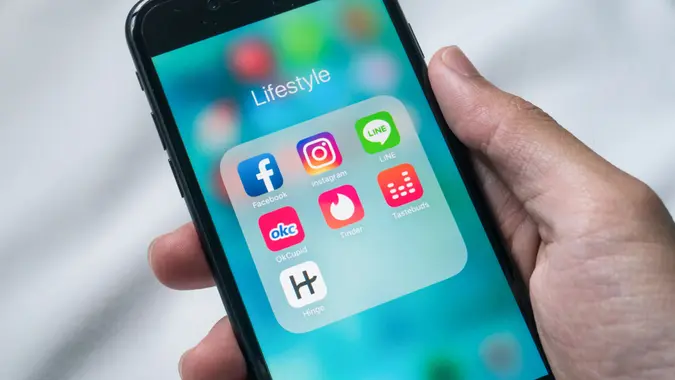In the modern age of dating, apps like Tinder, Bumble and Hinge claim to consolidate your options and help you find love. However, when viewing more profiles or limiting your dating preferences are locked behind monthly subscriptions, the true motives behind these apps are called into question. Ultimately, dating apps should fundamentally be created for deletion; helping users find their perfect partner assumes they will cease use of the (app once that happens. Although, when it feels like endless swipes are leading nowhere, are these apps really trying to help you find your match, or is their goal to make you pay for love?
Earlier this year, Tinder introduced their first global campaign based on the slogan, “It Starts with a Swipe.” The series of Gen Z-targeted advertisements features various couples doing everything from hooking up to meeting the parents. The central idea is that regardless of what type of connection you are looking for, Tinder has someone for everyone. However, if you want to find that special someone, you have to keep swiping. Even if you do find the love of your life or your ideal one-night stand on the app, there is no guarantee that person will feel the same way about you. Generally speaking, that is where paid subscriptions on these apps come into play: they essentially increase your chances of getting that ideal match. They do this in a variety of ways, like offering “Super Likes” or allowing you to limit your search to those who match specific preferences. In any case, though, these helpful features come at a staggering cost.
According to a Pew Research Center survey, about one-third of online dating users have paid to use a platform. This includes paying for certain exclusive apps, or purchasing a subscription on a free app for access to extra features. Tinder Gold is the app’s mid-tier subscription option, in between Tinder Plus and Tinder Platinum. The prices for subscriptions change based on certain factors, but this subscription generally hovers around $24.99 a month. Included in a Tinder Gold membership is the ability to see everyone who swiped right on you, regardless of if you ever swiped on them. According to their website, this feature helps you make an “adult decision on who you Like and Nope.” Isn’t it less of an “adult decision” if you are insecure enough to the point where you need to know what everything else thinks about you before you make a decision about them? Aren’t dating apps hinging on your insecurities in the first place? If you’re not getting enough matches, you have to pay for a subscription to boost your profile to everyone in a 10-mile radius. If the app is showing you people that are totally not your type, forking over $24.99 a month is the only way to see someone you’d actually consider going out with. However, paid subscriptions for these apps are nothing more than a way to make money off fabricated insecurities made by these same apps. Attaching some inconsequential value to the number of “Likes” you receive doesn’t mean you’re perfect dating material; it means you’ve fallen victim to the dopamine-inducing sounds and colors that play when you get a match.
Logically, if everyone who uses a dating app never had to pay to see results, these apps would shut down. From my observations, their whole business model is to make the free version of the app beneficial enough so you keep using it, but just underwhelming enough that you can’t successfully find a good match. Then, when you finally get frustrated with the endless swiping, paid subscriptions get pushed onto your low self-esteem and you type in that credit card information.
For the serious dater looking for a lifelong partner, handing over the subscription payment for a few months until you stumble upon your perfect match may seem inconsequential in the long run; for the average college student looking for a one-night stand or low commitment situationship, a subscription is a waste of money. However, the time will come when those pain-seeking college students look for love instead, and the endless swiping won’t cut it. Regardless of what they may claim, dating apps are made to keep you using them, and the only way to end the torturous cycle is to pay your way out of it.
Cailee Zeraat, FCRH ’25, is an English major from Fairfax, Va.










































































































































































































